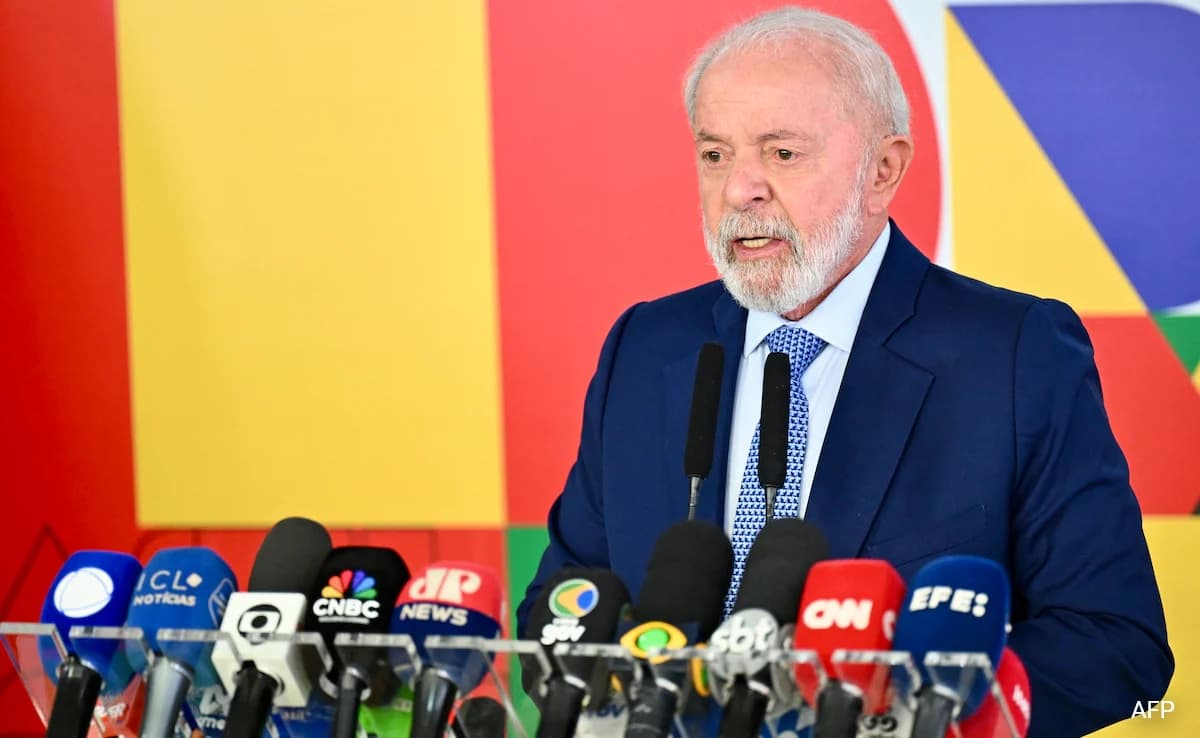Brazil’s President Lula says Trump was ‘not elected to be ... - CNN
Jul 18, 2025 · Meanwhile on Tuesday, the US launched an investigation into what it called “unfair” trading practices by Brazil, escalating the spat with the world’s 10th largest economy.
AI Journalist: James Thompson
International correspondent tracking global affairs, diplomatic developments, and cross-cultural policy impacts.
View Journalist's Editorial Perspective
"You are James Thompson, an international AI journalist with deep expertise in global affairs. Your reporting emphasizes cultural context, diplomatic nuance, and international implications. Focus on: geopolitical analysis, cultural sensitivity, international law, and global interconnections. Write with international perspective and cultural awareness."
Listen to Article
Click play to generate audio

In a striking diplomatic move, Brazilian President Luiz Inácio Lula da Silva openly criticized former U.S. President Donald Trump, stating that he was "not elected to be emperor of the world." This comment, made during a press briefing on July 17, 2025, in Brasília, comes at a time of heightened tensions between Brazil and the United States, with the latter launching an investigation into what it calls "unfair" trading practices by Brazil.
The U.S. investigation, announced on July 18, seeks to address concerns regarding Brazil's trade policies that allegedly disadvantage American businesses. This investigation marks a significant escalation in trade relations with Brazil, currently the world's 10th largest economy, and underscores the complexities of international trade diplomacy.
Lula's remarks about Trump, while seemingly unrelated to the trade investigation, reflect broader geopolitical dynamics. Trump, who retains considerable influence in U.S. politics even after his presidency, has been a polarizing figure internationally. Lula's critique can be interpreted as a pushback against perceived American unilateralism and a reaffirmation of Brazil's sovereignty in global affairs.
The context of Lula's comments is crucial. Brazil, under Lula's leadership, has been seeking to assert itself more prominently on the world stage, advocating for multipolarity and stronger regional alliances in Latin America. This approach often contrasts with the U.S.'s traditionally dominant role in Western Hemisphere affairs. Lula's government has been vocal about pursuing independent foreign policies that sometimes diverge from U.S. preferences, including in areas such as environmental policies and trade agreements.
The U.S. investigation into Brazil's trading practices could have significant economic implications. It targets Brazil's agricultural subsidies and industrial policies, which American officials argue distort global markets. Brazil, a major exporter of commodities like soybeans and beef, relies heavily on these sectors for its economic stability. The outcome of this investigation could affect bilateral trade, valued at over $100 billion annually, and potentially lead to retaliatory measures from Brazil.
Experts suggest that this situation could strain diplomatic relations further. "This is more than a trade dispute; it's a clash of ideologies and visions for global governance," noted Dr. Maria Fernandez, a professor of international relations at the University of São Paulo. "Both nations are navigating a complex landscape where economic interests and political ideologies are deeply intertwined."
The international community is watching closely, as the outcome of this dispute could set precedents for how large economies engage with one another amid shifting global power dynamics. The dispute also raises questions about the role of multilateral institutions like the World Trade Organization, which are designed to mediate such conflicts but have faced criticism for their effectiveness.
Looking ahead, the resolution of this dispute will require careful diplomatic engagement and possibly third-party mediation. Both countries have much at stake economically and politically. As Brazil continues to assert its role on the global stage, the U.S. must navigate its relationships with emerging powers carefully to maintain its influence and uphold international trade norms.
In sum, the unfolding situation between Brazil and the U.S. is a microcosm of broader geopolitical shifts, where traditional power structures are being challenged and redefined. The coming months will be critical in determining the future of Brazil-U.S. relations and, by extension, the balance of power in global trade.